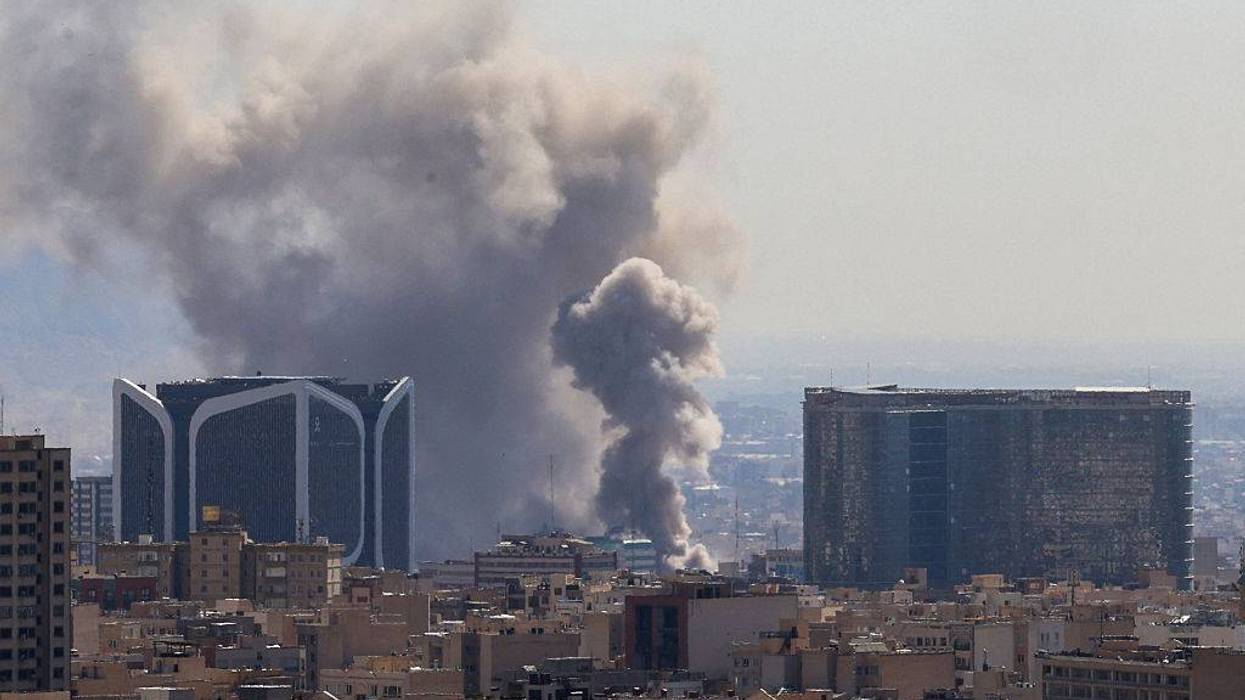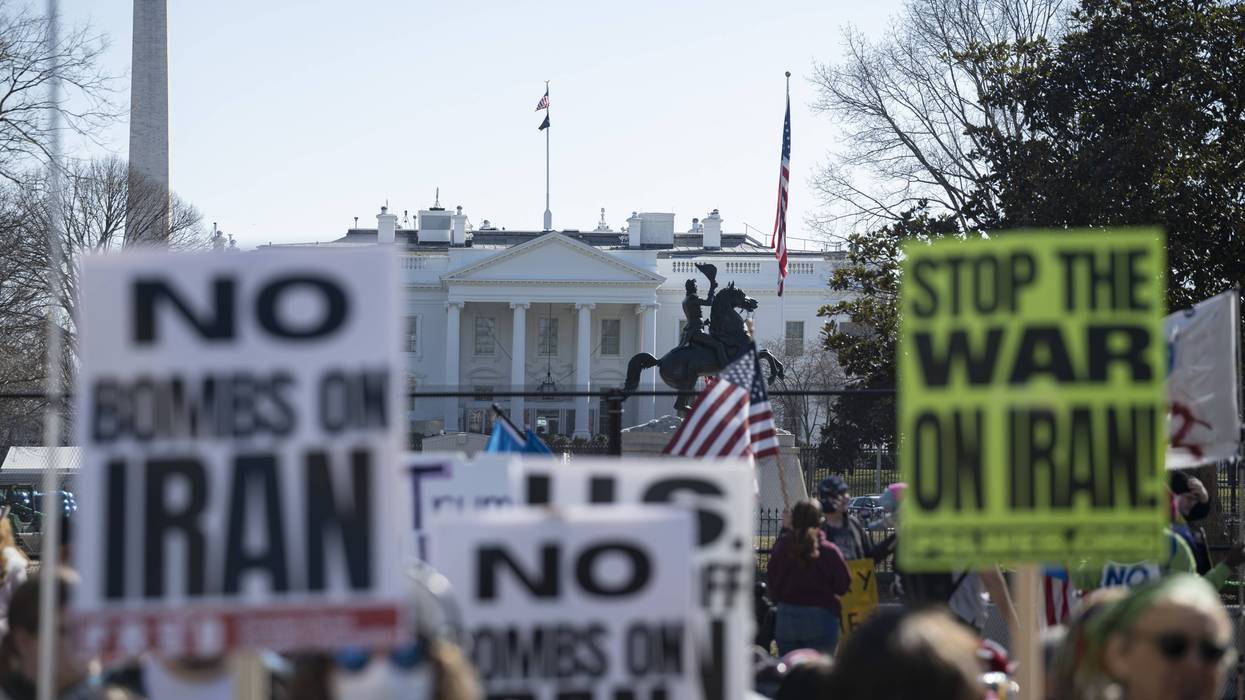May, 17 2012, 08:36am EDT

Azerbaijan: Free Activists, Journalists Held on Bogus Charges
Allow Peaceful Protests Planned Ahead of Eurovision
BAKU
The Azerbaijani authorities should promptly follow the May 15, 2012 release of an opposition activist by releasing others held on politically motivated charges, Human Rights Watch said today. Ahead of the 2012 Eurovision Song Contest on May 22 through 26, the authorities should guarantee freedom of expression for protesters planning peaceful demonstrations in Azerbaijan's capital, Baku, as well as for the thousands of local and foreign journalists covering the song contest, Human Rights Watch said.
The release of Elnur Majidli, an opposition activist, on May 15 was unexpected, Human Rights Watch said. He was freed after a court hearing at the prison, based on a request he put forward to a local court. Majidli was arrested at a peaceful demonstration in Baku on April 2, 2011, together with hundreds of other demonstrators, who had taken to the streets inspired by the uprisings in the Middle East. He had been sentenced to two years in prison.
"Majidli's release is a positive step, but there are many others who unfairly remain in detention," said Giorgi Gogia, senior South Caucasus researcher at Human Rights Watch. "With all eyes on Azerbaijan for Eurovision, the Azerbaijani authorities have a unique opportunity to demonstrate to the world not only their capacity to host a headliner event, but also their commitment to human rights by releasing the journalists, bloggers, and activists they have locked up."
At least 10 other people detained in conjunction with the April 2011 protests remain in prison. They have begun a hunger strike to protest their continued detention and to draw attention to their situation ahead of the start of Eurovision.
The Eurovision Song Contestis an annual televised competition featuring music acts from 56 countries in and around Europe.It attracts 125 million viewers from around the world. Semi-finals will begin on May 22.
Azerbaijan's opposition parties plan peaceful protests on May 19 and 20. The authorities have not granted their requests to hold the protests in the center of Baku. The government should allow people, who have chosen to use the attention drawn to Azerbaijan by Eurovision to get their voices heard, to protest publicly without interference, Human Rights Watch said.
"Azerbaijan has a terrible record where peaceful demonstrations are concerned," Gogia said. "Police have broken up demonstrations by beating and arresting large numbers of people, as they did last April, or by simply rounding people up and shipping them out of the city."
Police in Baku violently dispersed demonstrators as recently as May 14, when they broke up two separate peaceful protests in the center of Baku. Police rounded up several hundred protesters gathered in the city center to call for the release of political prisoners. Video footage of the incident shows police roughing up peaceful protestors, dragging and beating some. Many were transported to the outskirts of Baku and released on the side of the road.
International human rights law recognizes freedom of expression as a fundamental human right, essential both to the effective functioning of a democratic society and to individual dignity.
Azerbaijan also remains hostile to other forms of expression, particularly when criticism of the government is involved. Independent journalists, human rights defenders, and others seeking to express their opinions, investigate issues of public interest, or criticize government authorities have been attacked, harassed, threatened, and imprisoned.
Six journalists, one blogger, and two human rights defenders are in prison in Azerbaijan, convicted on spurious criminal charges apparently related to their journalism or other expression of their opinions.
As recently as April, in the middle of the day, police and security officials from Azerbaijan's state oil company viciously beat Idrak Abbasov, a well-known Azerbaijani journalist who was filming forced evictions and house demolitions by the oil company. The officials kicked and beat him unconscious, leaving him with a concussion and multiple bruises.
A Human Rights Watch researcher will be in Baku from May 17 through the end of the Eurovision Song Contest.
Human Rights Watch is one of the world's leading independent organizations dedicated to defending and protecting human rights. By focusing international attention where human rights are violated, we give voice to the oppressed and hold oppressors accountable for their crimes. Our rigorous, objective investigations and strategic, targeted advocacy build intense pressure for action and raise the cost of human rights abuse. For 30 years, Human Rights Watch has worked tenaciously to lay the legal and moral groundwork for deep-rooted change and has fought to bring greater justice and security to people around the world.
LATEST NEWS
Trump's Unprovoked War on Iran Triggers 10% Spike in Global Oil Prices
"When global energy security can be upended by a single flashpoint, it shows how unstable and risky our dependence on oil and gas is," said one critic.
Mar 02, 2026
President Donald Trump's unprovoked, unconstitutional, and politically unpopular war against Iran is about to cause pains for Americans at the gas pump.
CNBC reported on Monday that Brent crude oil prices surged by 9.3% to a 52-week high of $79.40 per barrel, while US West Texas Intermediate crude oil prices spike by 9% to $73.10 per barrel.
This spike in oil prices is projected to directly lead to an increase in gas prices in the coming days.
Petroleum industry analyst Patrick De Haan noted in a Monday update on his Substack page that gas prices in the US had already risen by roughly six cents in the last week, and that war with Iran would drive these prices higher.
"Developments surrounding Iran—particularly any threat to regional production or shipping flows—are likely to remain the dominant driver of oil prices," wrote De Haan, "and could keep crude elevated or push it higher if tensions intensify further."
A Sunday research note from Wells Fargo cited by CNBC drew attention to the importance of the Strait of Hormuz, which the Iranian government closed off over the week and which is used to transport roughly 20% of the global supplies of petroleum and liquified natural gas.
According to Wells Fargo, a "prolonged" closure of the strait would result in "an oil shock to $100+ per barrel," which it described as the "worst-case scenario" for global stock markets.
In addition to closing off the Strait of Hormuz, Iran has also been launching attacks on other nations' energy infrastructure.
According to a report from Bloomberg, Saudi Arabia’s largest oil refinery at Ras Tanura had to cease operations on Monday after being struck in a drone attack.
"An attack on major energy infrastructure is a nightmare scenario for global markets," noted Bloomberg, "with maritime traffic through the crucial Strait of Hormuz all but halting."
Olivia Langhoff, managing director at climate justice organization 350.org said that the global economic disruptions being caused by the Iran war shows the folly of continuing to rely on fossil fuels for energy needs.
"When global energy security can be upended by a single flashpoint, it shows how unstable and risky our dependence on oil and gas is," Langhoff said. "Renewable energy provides homegrown power that remains secure and affordable regardless of geopolitical shocks."
Langhoff's comments were echoed by Mads Christensen, executive director of Greenpeace International.
"As long as our world runs on oil and gas, our peace, security and our pockets will always be at the mercy of geopolitics," Christensen explained. "Increasing output may temporarily ease price pressures, but it does not address the structural vulnerability at the heart of this recurring crisis: the world’s continued dependence on fossil fuels."
The increase in gas prices comes at a time when US voters have been expressing widespread dissatisfaction with the economy under Trump, as polls show voters have been particularly anxious about the prices of groceries and utilities, among other essentials.
Keep ReadingShow Less
Only 25% of Americans Support Trump Attack on Iran: Poll
"If this goes on... this is going to become a political disaster," said one foreign policy expert.
Mar 02, 2026
President Donald Trump's war in Iran is extraordinarily unpopular, according to a poll conducted shortly after the US and Israel carried out massive strikes on the country Saturday.
The survey, conducted by Reuters/Ipsos, found that just 27% of voters approved of the strikes, which have killed at least 555 Iranians as of Monday morning and resulted in retaliation from Iran that has killed at least four US service members, with more casualties expected according to a spokesperson for the US Joint Chiefs of Staff.
Meanwhile, 43% of respondents disapproved of the military action, while 29% said they were not sure.
A majority of Republicans said they approved of the strikes, with 55% expressing support. Still, 13% disapproved, and a noteworthy 31% said they were unsure.
Approval is dismal with nearly everyone else. Only 19% of independents expressed support compared to 44% who disapproved. And though Democratic leaders in Congress have done little to stand in the way of the strikes, their voters are overwhelmingly against them: 74% said they disapproved, while just 7% approved.
The poll reflects a wider skepticism of US military intervention, with 56% of respondents saying the president was too quick to deploy military force in recent months, including in Venezuela, Syria, and Nigeria.
Compared with previous US military interventions in the Middle East, such as the invasions of Iraq and Afghanistan, which—at least at their outset—enjoyed broad support from the American public following intense government efforts to drum up support, there has been little effort by the Trump administration to define the purpose of war with Iran.
Trump's justification for launching the war has shifted wildly since he began amassing troops in the region. Trump has most recently said the strikes were intended to stop an "imminent threat" from Iran; meanwhile, the Pentagon has told Congress there was no sign Iran was planning an attack unless the US did so first.
The president previously said his push for war was to prevent Iran from developing a nuclear weapon, an assertion at odds with his claim that his strikes in June "obliterated" the country's nuclear capabilities.
Trita Parsi, executive vice president of the Quincy Institute for Responsible Statecraft, told Al Jazeera that Trump's shifting explanations reek of "desperation."
"It's very clear that Trump has a tremendous difficulty finding a justification for this war of choice that he's embarked on," he said. "The reality is that if this goes on for another week or two, this is going to become a political disaster."
"So now he's suddenly, desperately, using all kinds of justifications: Liberating the Iranian people, Iran is fighting against civilization," Parsi said. "If he actually had a case, he would have stuck to that point and made it clearly. But he doesn't have one."
Keep ReadingShow Less
Call Grows to Impeach Trump, 'The Most Dangerous Man on the Planet'
"Trump’s illegal war on Iran and the rule of law," said one pair of campaigners, "establish an intolerable pattern of egregious abuses of power, directly threatening our constitutional order, our safety, and our way of life."
Mar 02, 2026
After the unprovoked bombing of Iran over the weekend by the United States and Israel—strikes that included the unlawful assassination of Iranian Supreme Leader Ali Hosseini Khamenei—the call for US President Donald Trump to be impeached and removed from office has grown as the straightest path to hold the US leader to account for the attacks which policy and human rights experts have condemned as a serious war crime.
With a regional war in the Middle East that was already boiling from Gaza to Lebanon and from Syria to Yemen now exploding in the wake of the US-Israeli attacks on Iran, Globe and Mail columnist Debra Thompson on Sunday called Trump "the most dangerous man on the planet."
"Rather than ending wars," Thompson notes, "Trump has initiated military action eight times, carrying out attacks in seven countries (Syria, Iraq, Iran, Nigeria, Yemen, Somalia, and Venezuela) in 2025." Such a pattern of violence and warmongering should make clear that failure to restrain Trump has only emboldened him.
"The recurring danger in this latest presidential aggression is that there are no guardrails, no constraints, and no post-hoc justification," writes Thomson, "other than that Mr. Trump is the President of the United States and can do whatever he wants."
But American presidents cannot simply do whatever they want. According to a Reuters/Ipsos poll out Sunday, less than 25% support the president's aggression against Iran. In the first wave of the US military attack, an Iranian school for girls was bombed, killing over 108 civilians, mostly children.
While some congressional lawmakers are pushing for a vote this week on a War Powers Resolution to curtail US military operations against Iran, others are demanding more robust action from Congress to bring Trump's war-making to an end.
"Under Article I, Section 8 of the U.S. Constitution, only Congress has the power to declare war, as well as to raise and support armies, provide and maintain a navy, and fund and regulate the military," declared novelist and political activists Stephen King on Saturday. "Impeach the SOB."
Mike Hersh and Alan Minsky, respectively the communications director and executive director of the Progressive Democrats of America, argued in a Sunday op-ed for Common Dreams that "Trump's illegal, unconstitutional war on Iran is not only a moral and humanitarian disaster, but also a profound constitutional crisis."
According to Hersh and Minsky:
Trump’s illegal war on Iran and the rule of law establish an intolerable pattern of egregious abuses of power, directly threatening our constitutional order, our safety, and our way of life. These intertwined crises cry out for an immediate, decisive response by the Congress and the US public.
Therefore, PDA demands that all members of Congress, Democrats, Republicans, and Independents alike, uphold their oath of office to defend our constitutional republic. The Constitution offers one and only one remedy when President a repeatedly breaks the law and arrogantly refuses to abide by the limits on the power clearly laid out in the Constitution. That remedy is impeachment, followed by removal from office.
Matt Duss, executive vice president for the Center for International Policy, said that US lawmakers, as well as the American people they represent, "must also be ready to hold the president and his administration accountable for this breach of US and international law."
"The failure to hold past presidents liable for war crimes and related violations of our own laws has helped lead to this dangerous moment, with a seemingly unrestrained president endangering millions of lives with impunity," warned Duss. "The forever wars and the imperial presidency must finally come to an end.”
Keep ReadingShow Less
Most Popular


